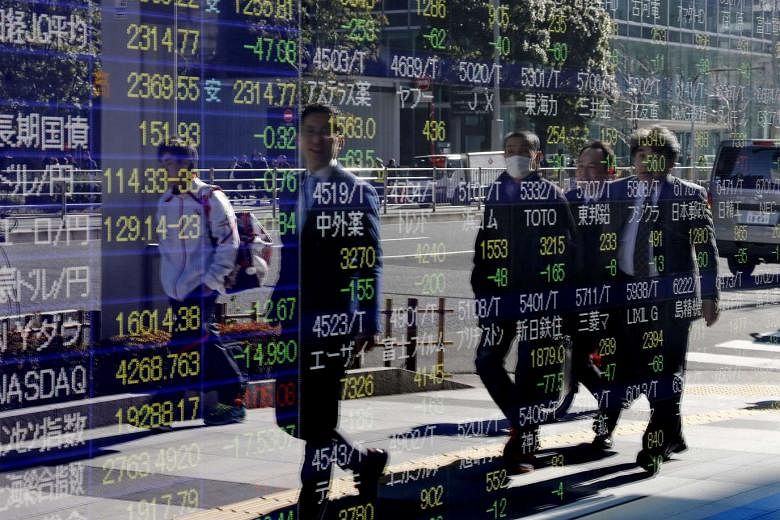SINGAPORE (BLOOMBERG) - The yen's surge is sparking concern the rally may run into a roadblock from Japanese policy makers.
With the currency strengthening beyond 114 per US dollar, the prospect of the Bank of Japan either stepping in to sell yen or cut interest rates is a growing risk, HSBC says. Bank of America Corp and Morgan Stanley say the authorities are likely to limit themselves to sounding a warning to investors not to push the exchange rate too high.
"Foreign-exchange markets will have to remain mindful of the intervention threat," David Bloom, HSBC's London-based global head of currency strategy, wrote in a note on Wednesday (Feb 10). "This may take many forms, including rhetoric and more rate cuts, but the growing event risk is that Japan intervenes directly in the FX market."
Morgan Stanley's forecast for a stronger yen this year proved prescient - and was against the market consensus. But even its strategists failed to predict the scale of the currency's advance.
The bank said in December that the yen would climb to 115 per dollar in 2016, a level breached on Tuesday, when it reached a 15-month high of 114.21. That prompted strategists to withdraw one of their trading recommendations with a target of 114, and they also said investors should take profit on positions betting on yen gains versus the pound.
Japan's currency reached 113.33 per dollar on Wednesday, the strongest level since October 2014.
"Some verbal intervention by Japan's monetary and fiscal authorities becomes increasingly likely," Hans Redeker, Morgan Stanley's head of global foreign-exchange strategy, and analyst Sheena Shah, wrote in an e-mailed note.
The yen has climbed against all but two of the more than 150 currencies tracked by Bloomberg this year as evidence China is slowing and renewed concern about a global banking crisis drives investors into havens. About US$7.9 trillion has been wiped from global stocks in 2016, while around 30 per cent of global sovereign bonds - another relatively safe asset - now yield less than zero.
That helped push the yen up more than 6 per cent against the dollar this month, the most among its Group-of-10 peers. The BOJ's Jan 29 announcement that it will follow Europe by adopting negative interest rates only briefly weakened Japan's currency.
Intervention by the BOJ would be a major event. Japan hasn't bought or sold currency to sway the yen's price since a record intervention in 2011 helped stop its advance to a post- World War II record. Speculation the central bank will step in helped push one-week implied volatility on the yen-dollar rate to the highest in almost two months on Wednesday, data compiled by Bloomberg show.
Intervention by the BOJ is likely to roil other nations that are already bearing the brunt of China's surprise currency devaluation last August. In recent weeks, India and Kenya have called for coordinated action by monetary authorities of Group- of-20 nations to address the turbulence in foreign-exchange markets this year.
The G-20 meeting, where finance ministers and central-bank governors from the world's biggest developed and emerging markets meet, will be held in Shanghai on Feb 26 and 27.
As well as ending its yen calls, Morgan Stanley also advised traders to switch to positions that would benefit from the euro strengthening versus the dollar. The shared currency may advance to US$1.14 in the near term, from about US$1.13 on Wednesday, as traders seek "quasi-bullish yen trades," the strategists wrote.
Bank of America agrees that Japan will likely limit its action to verbal intervention.
Yet Japan's warnings have "proven ineffective" in the past," Shusuke Yamada, a currency strategist at Bank of America in Tokyo, wrote in a note.
"Actual foreign-exchange intervention does not seem like a possibility anytime soon."

